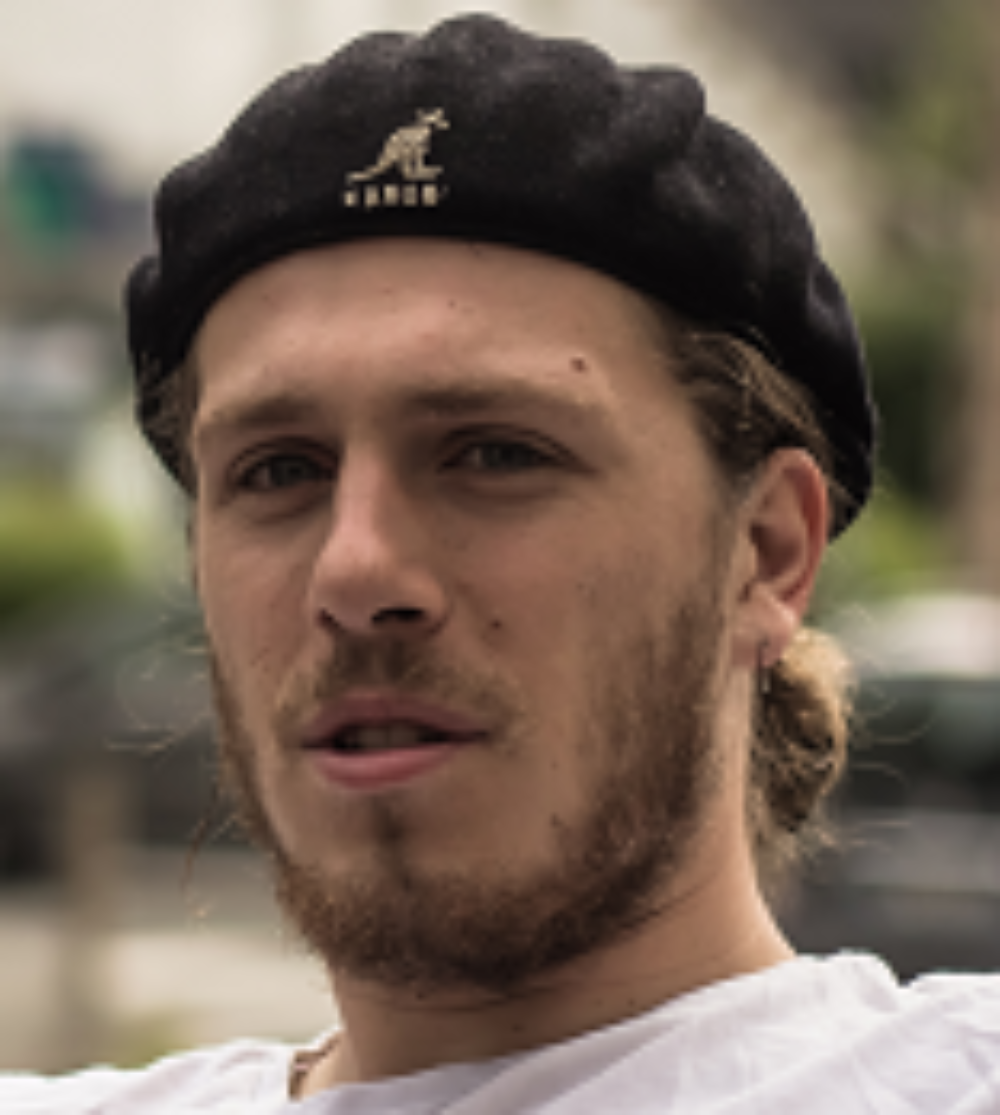You can download my full CV at the following link (English version).
Scientific and Editorial Responsibilities
Administration Responsibilities at TU Wien:
- Delegate member of the Scientific Staff Council of the faculty of Informatics
- Co-developer and maintainer of the VR&AR research group website (link)
- Co-author of the new master curricula reform for Visual Computing
Conference Program Committee:
- Co-workshop chairs of IEEE VR 2025 (link)
- Co-organizer of the workshop “Perception and Animation of Dissimilar Avatars (PANDAS)” during IEEE VR 2024 (link)
- Member of the Poster Awards Committee at VRST 2024
Conference International Program Committee:
- IEEE VR (2026), IEEE ISMAR (2022–2025)
- ACM SUI (2023–2025), ACM VRST (2025)
- EUROXR (2025)
Reviewer for conferences:
- ACM CHI, IEEE VR, IEEE ISMAR, IEEE VRST, ACM SUI, EuroXR
Reviewer for journals:
- Nature Scientific Data, Frontiers in Virtual Reality, Elsevier International Journal on Human Computer Studies and Human-Computer Interaction, ACM Transactions on Applied Perception, IEEE Transactions on Visualization and Computer Graphics, Springer Virtual Reality
Skills
- Programming: C#, C++, Java
- Game Engines: Unity 3D, Unreal Engine
- Statistics: R, Python, Matlab
- Design, implementation, and assessment of XR user studies
- Management of national and international research projects (budgeting, reporting)
- Scientific writing for articles and proposals (LaTeX, Word)
- Reviewing scientific articles in XR-related conferences and journals
- Research ethics and scientific integrity
- Communication and Content Creation (website, LinkedIn, YouTube)
- Autonomy and ability to handle multiple projects and tasks
- Marketing and exploitation strategy for applied research projects
Grants
- 2025–2027 – Co-author of the FFG F&E project Post-Disaster (€500k)
- 2023–2025 – Co-author of the FFG F&E project GeoCROW (€300k)
- 2022–2024 – Co-author of the subcontract for the EU Horizon VERTigO project (€100k)
- 2020 – 3-month grant from the doctoral school of Brittany for scientific mobility at the University of Central Florida (top 25% of PhD students applying at Inria)
- 2018 – Grant from the Ministry of Higher Education and Research funding a PhD degree (High-selection process, top 10% of master students applying)
Awards
- Best Emerging Technology Demo Award – SIGGRAPH 2023 (link)
- VGCT Virtual Reality Best Dissertation Honorable Mention – IEEE VR 2023 (link)
- Best scientific paper award at EUROVR 2020 (link)
- Best 3DUI Demo award at IEEE VR 2019 (link)
Collaborations
Local Collaboration (TU Wien)
- Hannes Kaufmann
- Khrystyna Vasyvleska
- Iana Podkosova
- Soroosh Mortezapoor
- Emanuel Vonach
- Mohammad Ghazanfari
National Collaboration
- Georg Regal, AIT, VERTIgO project (link)
- Markus Murtinger, AIT, in the context of NATO HFM MSG 354 activity
International Collaboration
- Gerd Bruder, University of Central Florida, USA
- Ferran Argelaguet, INRIA Rennes, France
- Francesco de Pace, CIM 4.0, Italy
- Dimitra Manoliadis, Altheria Solution, Brussels
- Massimo Migliorini, LINKS Foundation, Italy
- Andrea D’Angelo, Safe Foundation, Italy
- Maria Madarieta, Virtualware, Spain
Teaching Activities
- Responsible for Multimodal Interfaces at TU Wien (master, 6ECTS)
- Responsible for Advanced topics in VR course at TU Wien (master, 6ECTS)
- Co-responsible for Virtual and Augmented Reality course at TU Wien (master, 6ECTS)
- Co-responsible for Multimedia course at TU Wien (bachelor, 6ECTS)
- 2019: Object-Oriented Programming in engineering school (bachelor, 6ECTS)
- 2018–2021: Introduction to programming in engineering school (bachelor, 6ECTS)
- 2013–2014: One-year mentoring an autistic student at the University of Le Havre
Student Supervision
PhD Student
- Tobias Batik (2025–) – Use of Gaussian Splatting for 3D reconstruction with Drones (co-supervised with Hannes Kaufmann)
Master Thesis
- Miran Jank (2025–) – Cross reality interaction in Virtual Reality Tower Defense
- Michael Frühwirth (2025–) – Exploring Visual Patterns Contributing to Cybersickness while using Augmented Reality (co-supervised with Khrystyna Vasyvleska)
- Martin Crepaz (2024–2025) – A Virtual Reality Interface for Teleoperating Mobile Robots (co-supervised with Hannes Kaufmann)
- Oskar Perl (2023–2025) – Individual and Collaborative Interactions with Multimodal Data in Virtual Reality (co-supervised with Hannes Kaufmann)
- Christoph Götz (2022–2025) – Towards large-scale smell display for enhancing immersion (co-supervised with Hannes Kaufmann)
- Gabriel Ratschiller (2024) – Design and Evaluation of Different Selection Metaphors (co-supervised with Hannes Kaufmann)
- Tobias Batik (2022–2023) – Design and evaluation of a novel shape-changing haptic device (co-supervised with Hannes Kaufmann and Khrystyna Vasylevska)
Bachelor Thesis
- Adrian Cosic (2025) – Investigating the use of field of view restriction during jumps and virtual flying
- Johannes Gabler (2025) – Hyper Reality – AR Sickness Exploration (co-supervised with Khrystyna Vasylevska)
- Florian Eßl (2025) – Design of novel jumping metaphor in Virtual Reality
- Valentin Gobl and Jonas Epner (2025) – Design of a Hanger Reflex Device
- Tobias Brosch (2024) – Migrating the Virtual Reality Course from Unity to Unreal
- Niklas Burger (2024) – Comparative Analysis of Multimedia Development in Unity and Unreal Engines
- Lea Sahiner and Thomas Heilweger (2023–2024) – VR Game with Co-Embodied Avatar
- Christoph Pegrisch (2023–2024) – Virtual Co-Embodiment of Non-Human Avatars
- Barbara Weilgony and Linda Gan (2023–2024) – Full Body Co-embodiment in VR (co-supervised with Iana Podkosova)
- David Skrebic and Milan Kekic (2023) – Multi-User VR Environment Tutorial in WebXR (co-supervised with Iana Podkosova)
- Renate Zhang (2023) – User Navigation Behaviour with Different Locomotion Techniques
- Martin Gerdenich (2022–2023) – Influence of Cognitive Load on Positional Drift
- Emanuel Weingartner (2022) – Factors Influencing Unintended Positional Drift
